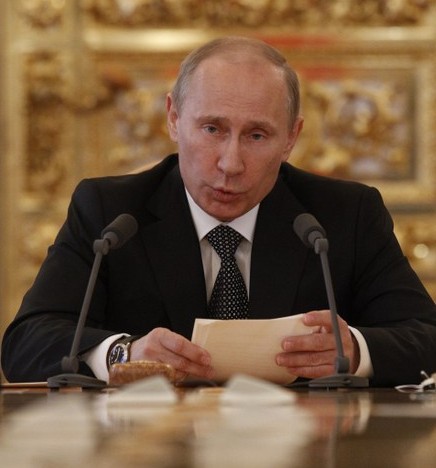Moscow received additional intelligence confirming that oil from deposits controlled by “Islamic State” (IS) moved through Turkey on an industrial scale, Russian President Vladimir Putin said.
On the sidelines of the climate change summit in Paris, Putin said Russia has grounds to suspect that Turkey shot down the Russian Su-24 on 24 November to secure illegal oil deliveries from Syria to Turkey.
“At the moment, we have received additional information confirming that oil from the deposits controlled by IS militants entered Turkish territory on an industrial scale,” Putin said. Russia has every reason to believe that the decision to down the plane was guided by a desire to ensure security of this oil’s delivery routes to ports, where they were shipped in tankers, he added.
Turkish President Recep Tayyip Erdoğan said he will leave office if there is proof of Turkey’s cooperation with IS. “We are not that dishonest as to buy oil from terrorists. If it is proven that we have done so, I will leave office. If there is any evidence, let them present it, we will consider it,” he said.
Regarding whether Moscow wants to form a large coalition against IS, Putin said Russia has always supported this initiative. “But this cannot be done while someone continues to use several terrorist organisations to reach their immediate goals,” Putin said.
Moscow has chosen to penalise Ankara by economic sanctions; Putin previously signed a decree that bans the importing of certain goods from Turkey.
Andrew Korybko, Moscow-based political analyst and journalist for Sputnik news agency and an expert at the Institute for Strategic Studies and Predictions, believes Russia’s reaction was predictable. “Those who are truly in tune with Russia’s foreign policy know that Moscow would not respond to Ankara with a direct military provocation,” he said.
Certain military steps that have were taken, such as deploying surface-to-air missiles to Syria, but these are defensive decisions taken to support Russian operations in Syria, not to set the stage for a forthcoming offence against Turkey, Korybko said.
He believes the economic responses were actually quite predictable, “if one thinks about them in hindsight. Turkey has certain economic spheres that are disproportionately dependent on Russian patronage, such as the tourism and energy sectors”.
Given the blatant aggression the Turkish government exhibited towards Russia, Moscow could not, in any respectable way, continue to support some of these projects, hence banning sales of tourism packages to Turkey. It will also likely freeze its energy megaprojects with the country, Korybko believes.
Russia’s intent is to macro-economically destabilsie the Turkish state and put it in a defensive position. Turkey must then take urgent and necessary domestic decisions to respond to Russia’s moves.
Considering that the last elections knocked Erdogan’s Justice and Development Party out of its leading position, any mismanagement in addressing the negative economic conditions with Russia’s restrictions could unintentionally lead to even more anti-government resentment and potentially engender another Gezi Park-like movement against Erdogan, he said.
Considering the consequences that Russia’s economic response to Turkey’s aggression could have on Ankara’s domestic politics, Korybko believes this would further divide the strategic focus of Turkey and put it in a more disadvantageous position to support terrorism in Syria.
Turkey and its military apparatus cannot do all things at once and a surge in domestic challenges would naturally prompt the government to prioritise its internal problems at the expense of supporting external destabilisation.
Russia’s reactions seem as though they will have a long-term effect on the role played by Turkey in Syria, according to Korybko.


